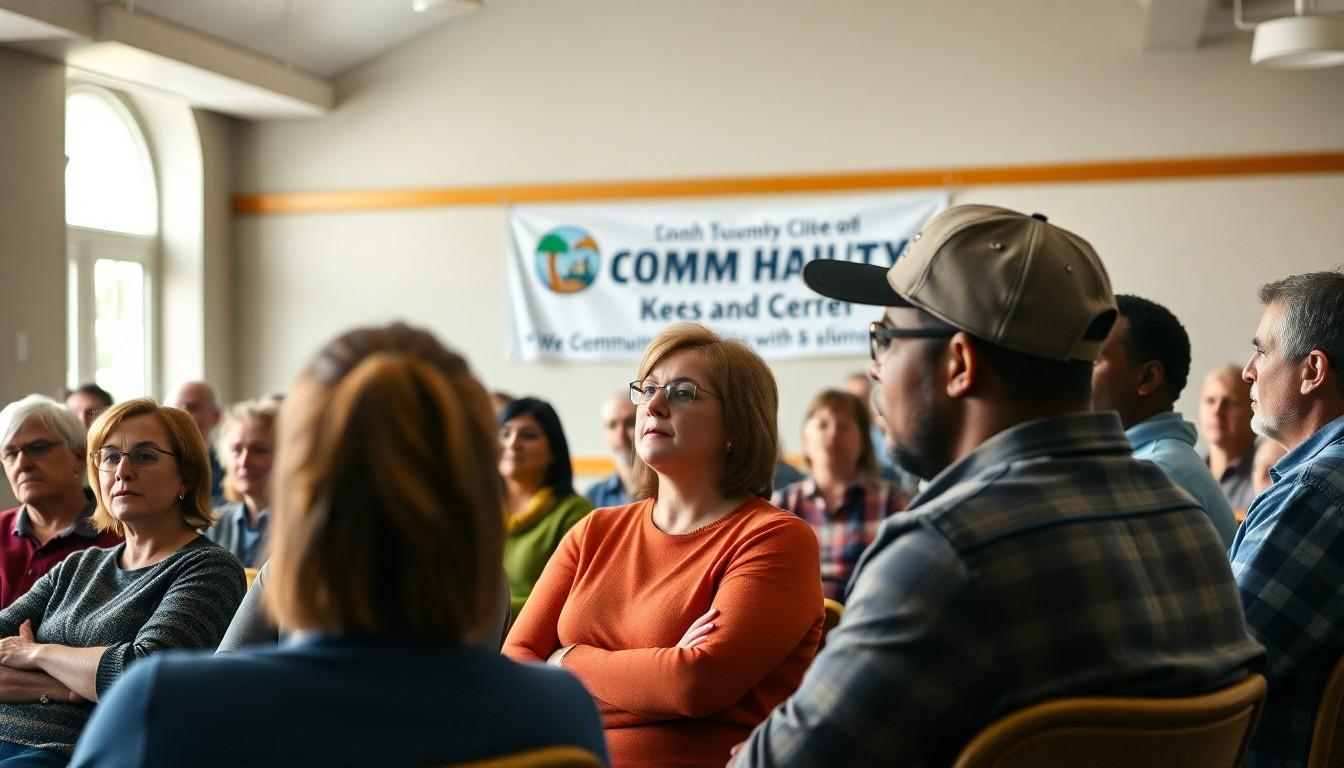Table of Contents
ToggleImagine a world where citizens sit idly by while decisions that affect their lives are made without their input. Sounds like a nightmare, right? Thankfully, that’s not how democracy works. Citizens have the power to shape their communities and influence the political landscape. But what does that really look like?
Importance Of Citizen Participation
Citizen participation plays a crucial role in shaping a democratic society. Active engagement in the political process enriches decision-making and strengthens community ties.
Enhancing Democracy
Participation enhances democracy by giving citizens a voice in the political landscape. Individuals influence policies, propose changes, and hold representatives accountable. Voting, attending town hall meetings, and joining advocacy groups serve as avenues for engagement. These actions enable citizens to express their opinions and advocate for their needs. Increased voter turnout correlates with a more responsive government. Ultimately, when individuals engage, democracy thrives.
Strengthening Community Engagement
Community engagement strengthens social ties and fosters collaboration. By participating in local initiatives, citizens work together towards common goals. Volunteering for neighborhood projects cultivates a sense of belonging. Joining local boards or committees offers citizens a platform to influence decisions affecting their communities. Stronger relationships among residents lead to more vibrant neighborhoods. Moreover, active participation cultivates future leaders dedicated to ongoing community improvement.
Different Ways Citizens Participate

Citizen engagement takes various forms, each contributing uniquely to the political process. Participation empowers individuals to impact their communities and influence governance.
Voting in Elections
Voting represents a fundamental act of citizen participation. Elections provide opportunities for individuals to voice their preferences on candidates and policies. High voter turnout indicates active citizen involvement. This involvement enhances the legitimacy of elected officials and promotes accountability. Studies show that communities with robust voter engagement often experience greater responsiveness from their governments. Citizens ensure their priorities are reflected in policy decisions when they vote consistently.
Attending Town Hall Meetings
Attending town hall meetings allows citizens to engage directly with elected officials. These gatherings create platforms for discussion on pertinent local issues. Participants voice concerns, ask questions, and receive updates on government activities. Local representatives gain valuable insights from constituents during these interactions. Such dialogues foster transparency and help build trust between officials and community members. Regular attendance at these meetings may lead to more informed representation of community interests.
Engaging in Advocacy
Engaging in advocacy involves promoting specific causes or policies. Citizens may join organizations or movements that align with their values and interests. This form of participation can take various shapes, such as writing letters, organizing protests, or participating in lobbying efforts. Advocates effectively raise awareness and promote change by mobilizing resources and rallying support. Successful advocacy efforts often lead to shifts in public opinion, influencing decision-makers and encouraging legislative action. Through advocacy, citizens amplify their voices and address pressing societal issues.
Examples Of Citizens In Action
Citizens actively participate in the political process through various initiatives that enhance community engagement and address local issues.
Community Organizing Initiatives
Community organizing initiatives empower residents to unite around shared interests. These efforts often focus on addressing specific challenges such as housing, education, or public safety. For example, local leaders might gather residents to identify issues and develop solutions together. Workshops and forums facilitate open discussions, allowing community members to express their concerns and collaborate on action plans. Through coordinated events, such as clean-up days or health fairs, citizens strengthen neighborhood bonds while advocating for important changes. These initiatives foster a sense of agency, encouraging individuals to take ownership of their communities.
Grassroots Campaigns
Grassroots campaigns serve as powerful avenues for citizens to influence political outcomes. Individuals often mobilize to support candidates or causes that resonate with their values. By organizing rallies and distributing flyers, they raise awareness and build momentum. Social media platforms extend their reach, enabling them to connect with a broader audience. Fundraising efforts help sustain these campaigns, allowing volunteers to focus on generating support rather than financial constraints. Many successful grassroots efforts demonstrate the potential for ordinary citizens to effect significant change in local and national politics. These campaigns create platforms where underserved voices gain visibility, promoting a more inclusive democratic process.
Role Of Technology In Civic Participation
Technology plays a vital role in enhancing civic participation. It provides platforms where citizens can express their views and engage in political processes.
Online Petitions and Campaigns
Online petitions and campaigns offer citizens quick avenues to voice concerns and demand change. Websites like Change.org allow individuals to create and sign petitions, mobilizing support for various causes. High-profile campaigns can gain thousands of signatures within days, demonstrating public interest in particular issues. Collectively, these signatures can influence policymakers by showing widespread support for specific changes. Organizations also utilize crowdfunding platforms to finance initiatives, enabling grassroots movements to flourish. This accessibility empowers citizens, inviting them to take part in shaping policies and driving social change.
Social Media Engagement
Social media engagement serves as a powerful tool for civic participation. Platforms such as Twitter and Facebook allow users to share opinions, organize events, and create awareness around critical issues. Citizens often use hashtags to unite discussions and foster a sense of community. Engagement through these platforms encourages real-time dialogue between citizens and their representatives, pushing for transparency and accountability. By easily sharing information, individuals can educate others about pressing topics and drive collective action. This immediate interaction not only amplifies marginalized voices but also brings issues to the forefront of political discourse.
Active citizen participation is essential for a thriving democracy. Each individual’s engagement shapes the political landscape and fosters a sense of community ownership. By voting attending town hall meetings and joining advocacy groups citizens not only express their views but also hold elected officials accountable.
The rise of technology further enhances these efforts allowing for swift mobilization and communication around critical issues. This blend of traditional and modern methods of participation empowers citizens to influence governance effectively. Ultimately a politically active citizenry strengthens democracy and paves the way for a more responsive and inclusive government.



